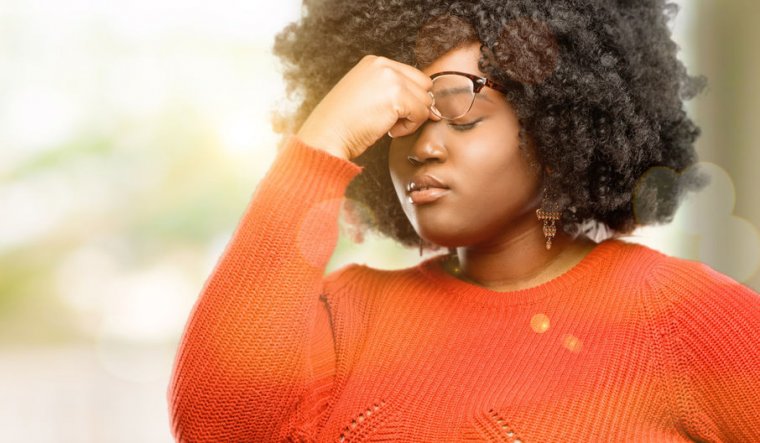
Coping with Stress and Anxiety - Feeling stressed or being anxious is something we are all going to feel at some point in our lives. Sometimes individuals can feel stress and anxiety and not know what is causing it. It can be just a vague feeling of dread or feeling overwhelmed. Your anxiety or stress can be a mild sense of uneasiness or feel very extreme with heart palpitations, sweating, and even feeling like you are going crazy. When you are feeling stress or anxious, you may have many different types of symptoms. You may have some of the following symptoms:
Aches and pains in your body, tense muscles, feel shaky or lightheaded, headaches, shallow breathing, nausea or other gastrointestinal distress, numbness, sweating, poor appetite, troubling sleeping, irritability, anger outbursts, depression, lethargy, problems concentrating, restlessness, and easily startled. These are not the only symptoms that you may have. Individuals experience anxiety and stress in different ways.
So what do you do if you are experiencing stress and anxiety? How can you cope with it? At the Center for Growth, these are some of the techniques that we will teach you.
Some Techniques for Coping with Stress and Anxiety
- Deep Breathing – Shallow breathing comes with feelings of anxiety or stress. By breathing deeper, your body will begin to relax. Here is a simple exercise to try. Sit comfortably in a chair. Take a deep breath in to a count of five. Hold the breath for a count of three, and then exhale for a count of five. Repeat 10 times. Try to remain focused on your breathing. You may find that as you are doing your breathing exercises that your mind will wander to other things and quite possibly to the things that are causing you stress. Notice when that happens and redirect yourself back to focusing on your breathing. Deep breathing works in two ways. It allows you to see the difference between shallow breathing and deep breathing and deep breathing in itself helps the body to begin to calm down. By practicing these exercises once a day over a period of time, you can begin to feel calmer on a daily basis.
- Physical Exercise – engaging in physical exercise when you are stressed or anxious helps you body to discharge the chemicals in our bodies that are released when you are feeling stressed out. Biologically, these chemicals prepare us for fight or flight when we are faced with an anxiety-provoking situation. We often do not need these stress chemicals for many of the things that cause us stress today. Physical exercise also releases endorphins that cause us to feel better. They are our bodies’ natural antidepressants. Physical exercise of any sort, even walking for 20 minutes, can reduce feelings of stress and anxiety. Physical exercise, practiced on a regular basis (3-4 times a week for 20 minutes) can help significantly reduce feelings of stress and anxiety on a regular basis.
- Make An Action Plan – Is there anything that is causing you stress and anxiety that you can do something about right now? For example, maybe you are feeling stressed because you have a lot of things to do. Sitting down and writing out a list of the things that you need to do and when you can get them done can ease your anxiety.
- Using a journal or other creative expression – writing in a journal can help to relieve stress by expressing your feelings, fears, concerns, worries, etc. Many people find that just writing things down helps them to feel better. You don’t have to buy a fancy journal and can just use a spiral notebook. When journaling, don’t be concerned with your grammar or spelling or even if it makes any sense. Let your writing be free-flowing. Write down whatever occurs to you. Remember no one needs to read it unless you want them to read it. Your journal is just for you to express yourself. Some people don’t like to write and prefer another creative activity like painting or drawing. Choose whatever creative activity feels comfortable for you.
- Distracting yourself away from the anxiety or stress – Sometimes you may find that it becomes really difficult to stop thinking about whatever may be bothering you or that it is not a good time to do deep breathing, exercising, or journaling. Another way is to distract yourself away from your thoughts by doing something else. Maybe you have a project that you can work on or a fun activity to do like watching a movie, reading, doing a crossword puzzle, or any other hobby or interest that you find enjoyable. Concentrating on something other than worries or things that are stressing you out, help to calm you down also.
Stress and anxiety are a part of life and we all are going to experience it from time to time. Learning how to cope with it effectively is the key.
